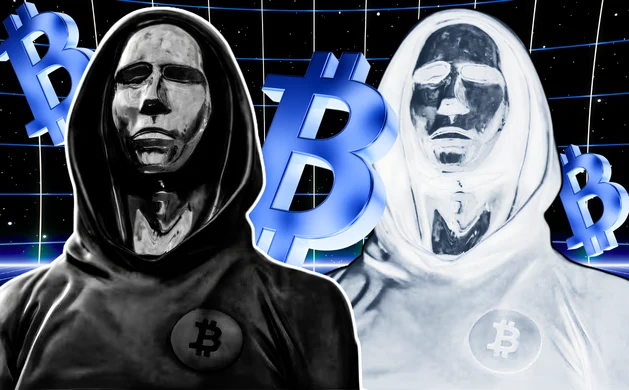Polymarket Debuts on Solana with SOL Deposits

GM. Polymarket just went live on Solana with native SOL deposits, expanding beyond USDC (on Polygon) as crypto betting gains traction with regulators.
In the meantime, Hyperliquid linked its core and EVM layers for smooth token transfers, while Trump’s USD1 stablecoin quietly launched on Ethereum and BNB Chain.
Let’s get into the latest crypto headlines. 👇
Polymarket Debuts on Solana with SOL Deposits
Prediction market Polymarket began accepting Solana deposits on Monday, expanding beyond its USDC-only structure on Polygon. The update intends to streamline access as user growth cools slightly from its January peak of 450,000 active traders.
The platform, which lets users bet on everything from presidential elections to crypto price action, has handled over $11 billion in volume over the past year. “This admin's commitment to collaboration with American innovators is revitalizing the American dream,” said Polymarket CEO Shayne Coplan after attending the White House Digital Roundtable this month.
Polymarket’s integration with Solana comes as regulators appear to soften their posture toward crypto wagering, especially in the U.S. The company remains officially barred from operating in the U.S., France, Singapore, and other jurisdictions but continues to grow internationally.
The launch coincides with surging interest in Solana, now the sixth-largest crypto asset by market cap, just ahead of USDC. High-profile bets on the platform currently include Canada’s election, Bitcoin’s next all-time high, and whether Jesus will return in 2025.
Hyperliquid Links HyperCore and HyperEVM for DeFi Boost
On March 25, Hyperliquid launched mainnet linking between HyperCore and HyperEVM, enabling direct token transfers within its ecosystem. HyperCore powers the protocol’s native trading infrastructure, while HyperEVM is an Ethereum-compatible environment for smart contracts and dApps. Developers can now issue tokens, deploy contracts, and activate trading without leaving Hyperliquid.
The linking process allows tokens like HYPE to move seamlessly between both environments using “spotSend” or ERC-20 transfers. This eliminates reliance on bridges or external validators, which have historically presented security risks. Hyperliquid warned that linking is immutable and advised users to first give it a run on the testnet.
Trump-Backed USD1 Stablecoin Launches on Ethereum, BNB
World Liberty Financial, a crypto venture backed by President Donald Trump, launched a USD-pegged stablecoin called USD1 on March 4. The token was deployed on Ethereum and BNB Chain with over $3.5 million in supply, though it is not currently tradable. The project said USD1 will be 100% backed by short-term U.S. treasuries and dollar-equivalent reserves.
The launch coincides with Trump’s push for new crypto legislation, including the GENIUS Act, which is expected to reach his desk by June. World Liberty raised $550 million from token sales and claims its reserves will be audited and custodied by BitGo. Former Binance CEO Changpeng Zhao (CZ) confirmed the contract deployment but denied involvement with the project.
ZachXBT Accuses Crypto.com of CRO Token Reissue
On March 25, onchain investigator ZachXBT accused Crypto.com of reissuing 70 billion CRO tokens originally burned in 2021. The post claimed the reissuance, which equals 70% of the total supply, undermines decentralization and community trust. Crypto.com confirmed the decision, saying it aligns with renewed political support for crypto in the U.S.
Critics allege the decision bypassed proper governance, with GitHub users and journalists claiming Crypto.com controls up to 80% of validator power. CEO Kris Marszalek defended the action in an AMA, calling it a pivot toward aggressive investment. The burn reversal comes shortly after Trump Media signed a non-binding deal with Crypto.com to launch crypto ETFs.
Data of the Day
PumpFun’s new decentralized exchange, PumpSwap, reached $1.1 billion in cumulative trading volume within its first seven days, according to March 25 data from Dune Analytics. The Solana DEX launched on March 19 to accelerate meme coin trading and eliminate previous reliance on Raydium for liquidity migration. On March 24 alone, PumpSwap recorded $425 million in volume and 4.2 million transactions.
Fees generated for the protocol topped $2.1 million, while over 388,000 users interacted with the platform. Pump’s move comes as Solana meme coin activity slows and competitors like Raydium prepare rival products. Token listings on PumpFun have declined significantly since peaking in January.

More Breaking News
- Mt. Gox moved over $1 billion in Bitcoin to unmarked wallets, sparking speculation about creditor payouts ahead of the October deadline, while still holding 35,583 BTC.
- Kraken is exploring a $1 billion capital raise with help from major banks ahead of a potential 2026 IPO, following a strong 2024 with $1.5 billion in revenue.
- eToro filed for a Nasdaq IPO aiming to raise up to $400 million after crypto trading drove a revenue surge to $12.6 billion in 2024, up from $3.4 billion the year prior.
- Cboe BZX filed for a “Fidelity Solana Fund”, signaling the asset giant’s entry into the race for a Solana ETF as demand for crypto investment vehicles grows.
- BlackRock’s $1.7B tokenized money market fund, BUIDL, has expanded to Solana, now active across seven blockchains with plans to hit $2 billion in assets by April.
- Brazil’s data authority upheld its ban on Worldcoin's crypto payments, citing biometric privacy concerns and threatening daily fines if data collection resumes.
- Circle is expanding in Japan with a March 26 USDC launch through SBI VC Trade, marking the first stablecoin rollout under Japan’s new regulatory framework.
For the latest updates on digital asset markets, follow us on X @Datawalletcom.

Written by
Jed Barker
Editor-in-Chief
Jed, a digital asset analyst since 2015, founded Datawallet to simplify crypto and decentralized finance. His background includes research roles in leading publications and a venture firm, reflecting his commitment to making complex financial concepts accessible.








